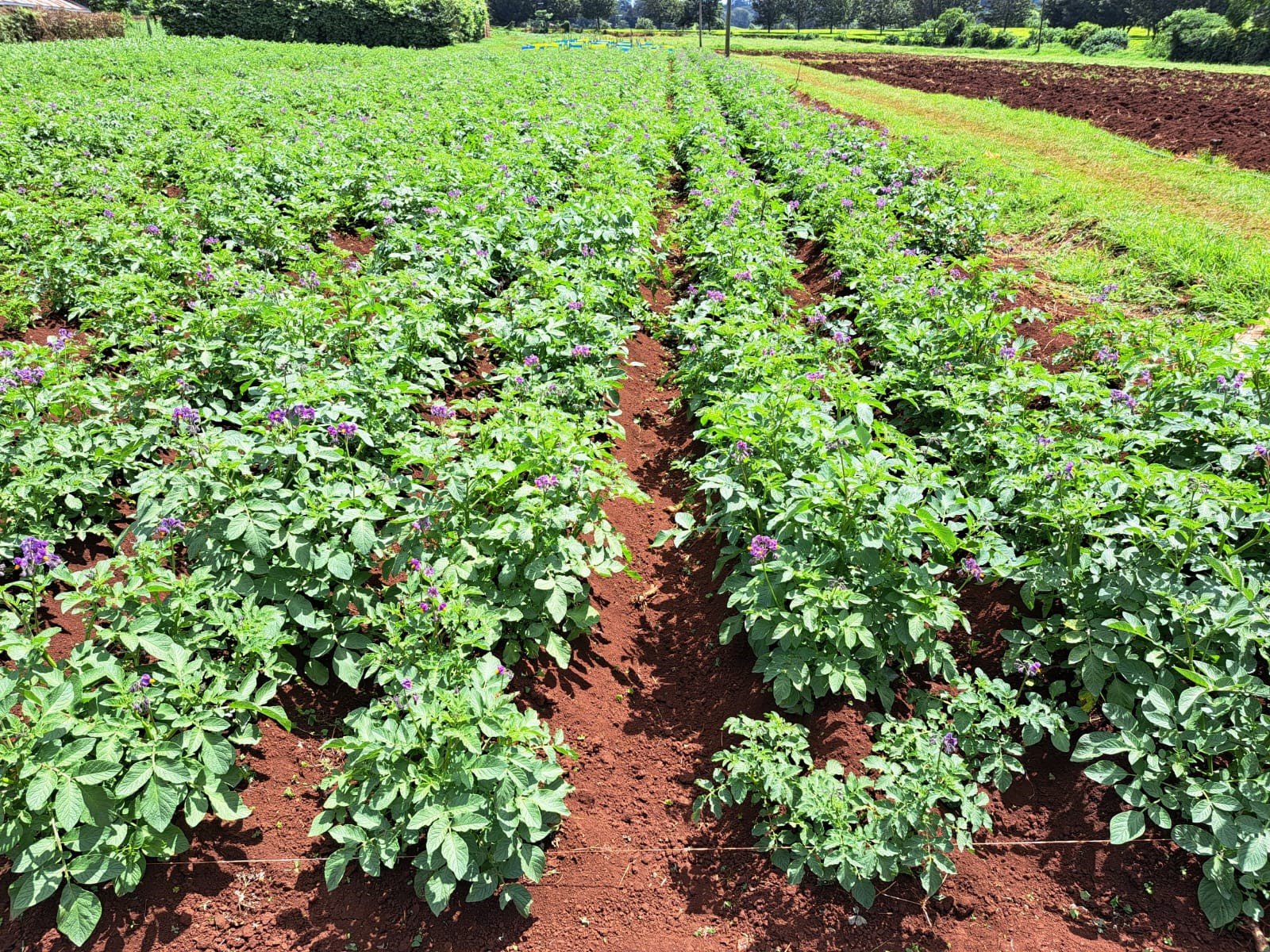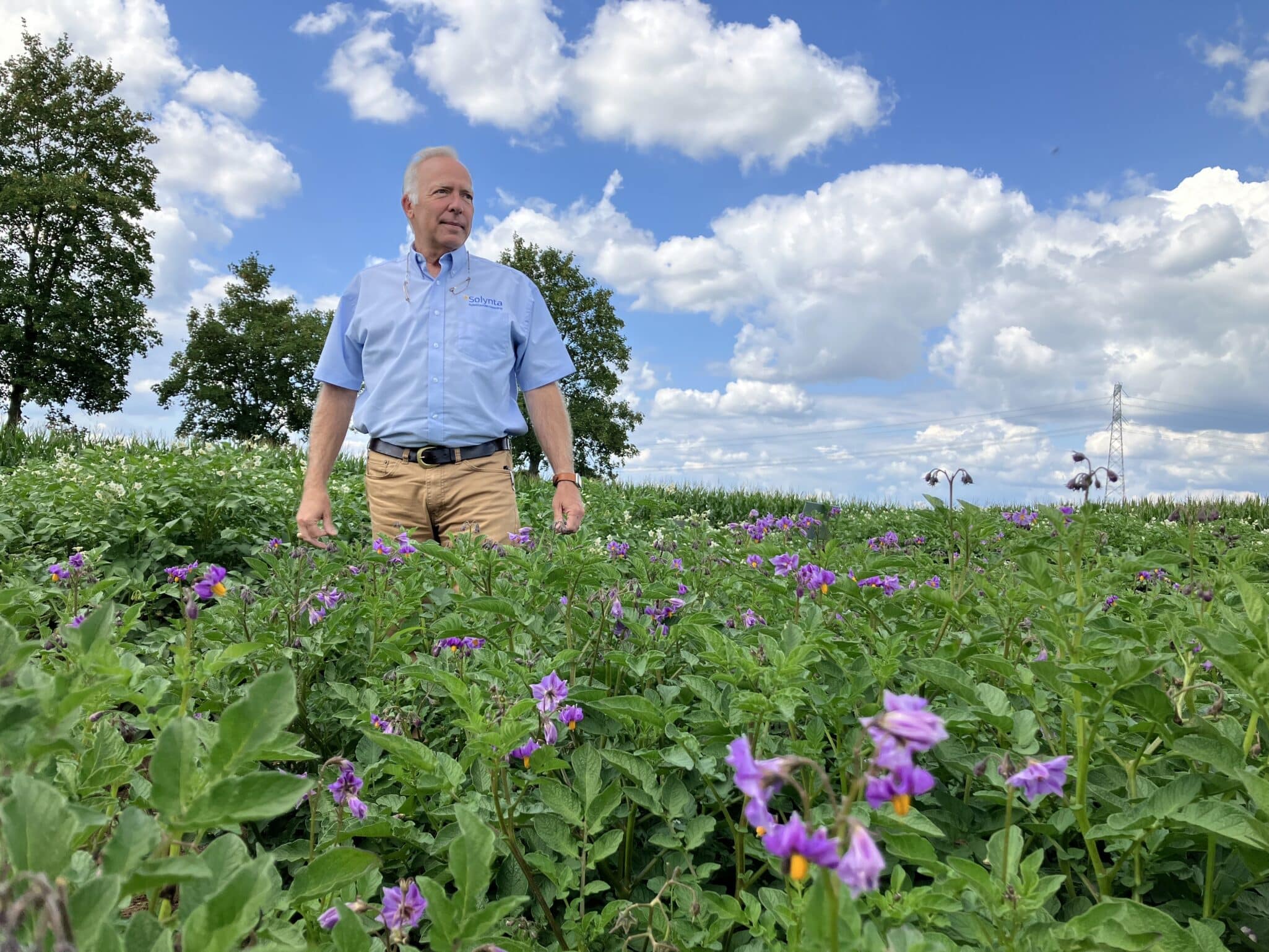Key Takeaways:
- Solynta’s hybrid breeding model replaces bulky seed tubers with efficient, true potato seeds, according to Charles Miller.
- Trials in Kenya serve as a testing ground for tropical highlands globally.
- The company works across 40+ countries, with a presence from East Africa to Canada.
- Solynta publicly released its diploid potato genome to promote open innovation.
- Hybrid breeding remains non-GMO and aims to reduce crop losses and pesticide use.
Rethinking Potato Farming: Charles Miller on Hybrid Breeding and the Power of True Seeds
As global agriculture grapples with increasing climate unpredictability, logistics bottlenecks, and growing consumer demand for sustainable food, Charles Miller, Director of Strategic Alliances & Development at Solynta, believes the potato sector is overdue for a shift. His message is straightforward: replacing traditional seed tubers with true potato seeds (TPS) can help modernize one of the world’s most consumed crops.
“Potatoes are still propagated like they were hundreds of years ago—clonally, through bulky seed tubers,” said Miller. “But sending two and a half tons of seed tubers to plant a hectare in Saudi Arabia, when you could send 25 grams of seeds, just doesn’t make sense anymore.”
Solynta’s hybrid breeding program uses diploid potatoes—two sets of chromosomes, versus the complex tetraploid genetics that have dominated European agriculture since potatoes were first exported from South America. With hybrids, the company can develop new varieties with resistance to major threats like late blight in as little as two years, a fraction of the 15–20 years typical in conventional programs.
Why Kenya Matters

Solynta’s field work spans more than 40 countries, but its trials in Kenya represent a critical case study.
“Kenya’s tropical highland environment is representative of many regions globally—Indonesia, Central America, South America,” explained Miller. “At the same time, there's a real need for affordable planting material and greater nutritional security.”
From high-tech nurseries to isolated community cooperatives, Solynta is working with a range of partners and smallholder farmers to test and validate the viability of TPS in real-world conditions.
Bridging Regulation and Adoption
While regulatory frameworks across many countries still cater exclusively to seed tubers, Miller spends a significant amount of time engaging with officials to create space for innovation.
“It’s like trying to fit a square peg into a round hole. The rules weren’t written for this,” he said. “But once we explain the benefits and how true seeds operate, most regulators are open to dialogue.”
Farmer education is another challenge. Adoption requires a mindset shift, especially for growers who’ve worked with tubers for decades.
“When smallholder farmers see the seeds, they sometimes say, ‘Oh, this looks complicated.’ But I remind them they already plant broccoli or cabbage from seed. It’s just potatoes done differently.”
Building the Future of Food
Beyond yield and logistics, Solynta views hybrid potatoes as a vehicle for greater food security and environmental sustainability.
“Hybrid breeding isn’t about GMOs—it’s about precision,” said Miller. “And we’ve shown that with the right traits, like blight resistance or drought tolerance, we can dramatically reduce pesticide use and increase farm-level resilience.”
Importantly, Solynta made its diploid potato genome public—an unusual move in the competitive seed industry.
“We released it with no strings attached. We believe the world benefits when we collaborate. If someone builds on that work, and we end up licensing it back, that’s fine—we’re stronger together than apart.”
Charles Miller Looks Ahead to 2030
By the end of the decade, Miller envisions true seeds playing a leading role in the potato supply chain.
“I think by 2030, hybrid potatoes will have made a significant impact globally. Seed tubers won’t disappear, but we’ll see more farmers—small and large—switching to seeds. It’s more efficient, more sustainable, and in the long run, better for everyone.”
With trials expanding across arid zones, equatorial highlands, and temperate climates, Solynta is positioning hybrid potatoes not as an alternative—but as the new global standard.


